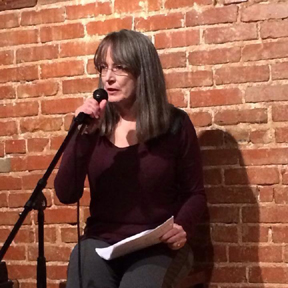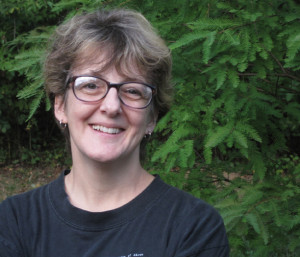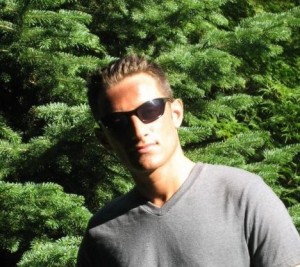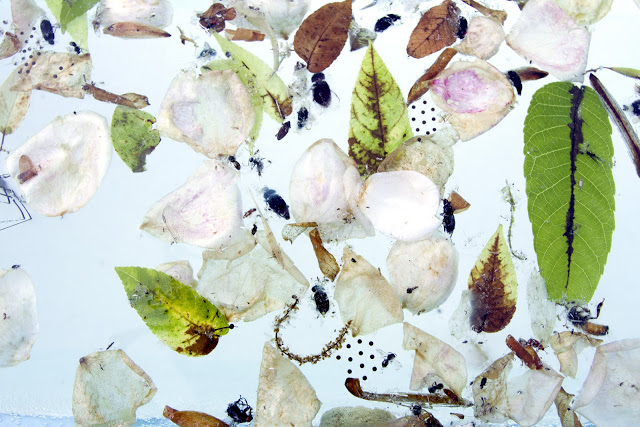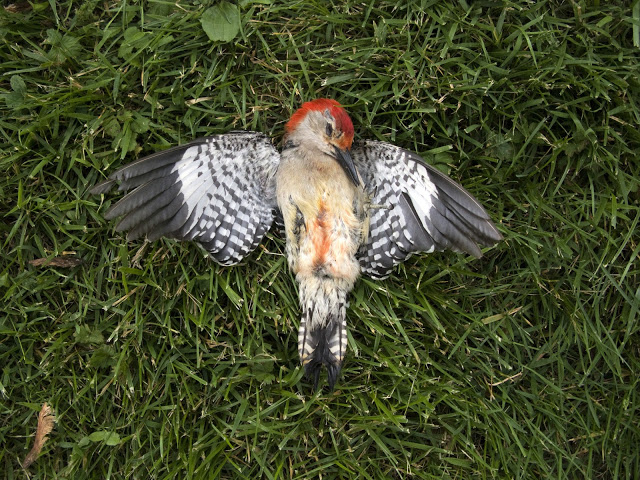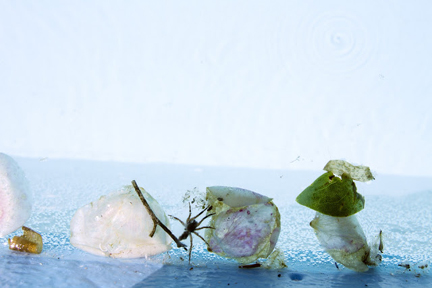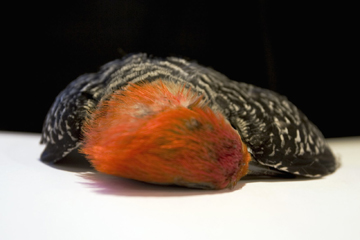*Interview curated by Joshua Wann
Lee Taylor: Which is more essential to your muse – place or work and working-class issues?
I’ll begin my answer with a quote from an excellent article “Making Sense of Sense of Place” written by Cynthia Neely and published in the March/April 2014 issue of The Writers’ Chronicle : “‘Place’ is difficult to fence into just one definition. It could be defined as a landscape that is historically, culturally, or personally important—and, to a writer, it could be literal, imaginary, or metaphorical. [ . . . ] But it seems ‘place’ can be any space a poet calls on, or to which he returns, in his writing.”
So, because “work” is a place—both in the sense of the embodied workplace and the idea of work as topic (topos), I’d say sense of place is most important to my work, whether that place is psychological (the topography of the human innerscape as in the poem published in the Summer 2014 issue of r.k.v.r.y.) or environmental (topography in its usual sense, landscape combined with the psychological and emotional components of physical places).
Sandi Soli: Dr. Mish, the importance of place is clearly evident in your writing. How did you come to recognize it as the vital core component of your work?
Thanks for a follow-up question to Lee’s opening one, Sandi. My first book, Tongue Tied Woman is primarily about psychological place and spaces, where my my second book, Work Is Love Made Visible, operates within what I believe to be the richest vein of “sense of place,” one that combines an environmental sense of place with a historical, familial, cultural, and psychological resonances. A few years after I published my first book, I felt that the poems in it kept emotion “at arms length” away, so I returned to iconic collections by poets whose work moves me: Joy Harjo, Lorna Dee Cervantes, Muriel Rukeyser, James Wright, William Stafford, Richard Hugo. And the poems I loved best in their collections were the ones in which sense of place was inextricable from the poem’s emotional, intellectual, and political arcs. So, when I noticed that the poems I was writing (the ones that became Work Is Love Made Visible) kept circling around family and our family place, Oklahoma, I decided to give free rein to the impulse to compose narrative forms with a strong sense of place. Although most of my new poems still have an identifiable narrative, at least half of the new work is closer to lyric, but even in the more lyrical poems, I find myself “calling on” (as Neely puts it) a series of spaces, some I’m returning to, some that are new territory.
Norbert Krapf: How is your writing “mongrel” and how does your work as editor of Mongrel Empire Press affect your own writing?
I think the foremost way my writing is “mongrel” is that I just can’t seem to stick to one style. I have at least three clearly identifiable styles: the storytelling, often vernacular poem; the long-lined poems (sometimes prose poems) that hover somewhere between prose and poetry, and what I call the “Latinate”poems, poems in which the multi-syllabic words we’ve inherited from the Latin language serve as structural underpinning, as sound-play instruments, and as thought-device with which to explore my scholarly, critical-theory-reading self. Of course, if you take all these styles together, you get a map to my ethnic, artistic, intellectual, and cultural hybridity, which is something I celebrate. My editorial work influences my writing by making me want to work harder at it, to push it to new places, because I see so much great work coming in “over the transom” to the press. It also makes me ask my poems more than once if they’re truly ready to be submitted—sometimes, poems just aren’t ready, and it’s more obvious to an editor—and to readers—than most of us think it is!
Miranda Bradley:What are some obsessions, compulsions, or distractions you deal with during the writing process, and how do you move past them?
Compulsion: I have to clean and organize my desk first! I used to think the compulsion to clean and organize my writing space was an avoidance behavior, but I decided to honor it as mental preparation, as creating a meditative state or a liminal space, a ritual which marks the time in which I am consciously moving into active writing. It works for me, to think of organizing my writing area as ritual. Sometimes, now, I can even jump-start my writing by initiating the cleaning ritual. Obsession? I have a hard time deciding when to put down the pre-writing reading I’ve been doing and get on with the writing. There’s always one more book! How do I move past it? Sheer determination. Distractions? Life in general; specifically, the tasks that come with all the different hats I wear, as MFA director, as small press editor and publisher, as teacher, as poet and essayist. I wish I could tell you that I’ve found a successful way to move past those, but I haven’t, not entirely. I do use a free app called “Self-Control” that lets me block Facebook, mail servers, all or part of the internet—I set what I want blocked and the amount of time I want it blocked for, and the only way I can override it is to restart the computer. It works for me—for instance, if I can’t see that email come in, I don’t feel like I have to answer it right away.
Chelle Gluch: All authors have a favorite writing space. Tell me about your favorite place to write and how that space inspires or affects you.
It’s only been in the last four years that I’ve had a favorite writing space, my beautiful office on the arroyo—the windows look out on Sandia Mountain (Albuquerque). The best thing about my space, in addition to the natural beauty of the area, is that all my poetry books are within easy reach (alphabetized by author’s last name, or, if anthology, by title). For most of my life, because I was a single mother and, until 2001, worked jobs that didn’t allow for intellectual or creative space (working in copy shops, waitressing, bartending, working as a nurse’s aid in nursing homes, etc), most of the writing went on in my head. Then, when I had time and space (which might be when I was waiting to pick my son up from school or after I got off work at 2 am and went to an all-night diner to wind down), I’d write, usually several poems at a time.
Alice M. Azure: I always like to know how a poet/writer works at her craft—the discipline of writing. For example, do you write every day? How do you hang on to words and phrases that get into your head? How much and how deeply do you edit your work? Do you work with a poetry circle?
Because of the habit of writing in my head that I cultivated for years, I am still primarily a “binger” rather than a “plodder” (thanks to my friend and colleague Allison Amend for these two useful terms). What I mean is, as a binger, I may not write a poem for 6 months, but then I’ll write 6 or 8 or 10 in the space of a week or two. Many of those poems have already been revised in my head when they hit the page, and sometimes they need only one more revision before they’re ready. I very rarely sit down and say to myself, “I’m going to write a poem.”I’m not a “plodder,”so I don’t make a time to sit down and write every day. I used to feel guilty about that, since almost all the writers’ advice I’ve read insists you must sit down every day at a regular time and write, but now, I roll with what I have, and I hope other bingers will be easier on themselves because I’ve confessed my irregular writing process.
When I’m writing essays, especially when I’m writing commissioned essays, I do sit down and say to myself, “it’s time to write that essay.” But even with essays, I’ve done a lot of pre-writing in my head and have a pretty good idea of the “shape” (literally, both prose and poetry feels like a shape of some kind, a shape I could gesture with my hands) of the essay before I hit the first letter on the keyboard. How much do I edit? I edit as much as the poem or essay needs—as well as I can judge it. One of my essay editors has a question in this interview—I wonder if I judge the amount of editing needed as well as I think I do! Fortunately, she did not ask about my editing process.
No, I don’t write with a poetry circle. I’ve always been a stereotypically lone writer. However, over the years I’ve been lucky to cultivate a trusted and beloved group of writers, friends, who are my second readers, my manuscript-sequencing experts, my advocates, and my critics. I rarely ever send them anything in progress; when I think the writing is close to final form, I send it and ask for feedback. I’m lousy at sequencing manuscripts so I always ask for help on that. Norbert Krapf, who has asked a question in this interview, sequenced Work Is Love Made Visible for me—I was stuck and couldn’t figure out what to do with it. Another friend recently sequenced one of the two chapbooks I have out as submissions, and Sandi Soli, who also has a question in this interview, is waiting on what might be my next full-length book, to sequence for me.
Kim Shuck: Some poetry is in dialogue with objects, some with the author, to what do you attribute the dialogue your work seems to have with other people not now present?
What a fascinating, thought-provoking, unusual question! I think there are two primary cultural reasons why my work is in dialogue with “other people not now present. ”One is that I was raised in a Southern family—not a “Deep South” family (as a Mississippi-born-and-raised friend recently reminded me), at least not a true Deep South family whose roots and branches are still in the Deep South. A third-generation, working-class (previously sharecropping), Deep South, post-reconstruction, gone to the Territories family (both Native and nonnative family members). My families found their way from the South to Oklahoma by two different routes, one through Missouri and Texas, the other through Arkansas and Texas. Southern literature, as we all know, has long and complex conversations with ghosts, haints, shades, and others not now present. I’m sure that I don’t need to go into the reasons why Southern literature is haunted, since most people who will read this interview will already know. The other cultural reason is that I am, like most people descended from early-settlement Oklahomans, mixed-blood Native American (I also have some African-American ancestry); Native people, too, acknowledge the presence of those not now physically present.
It doesn’t seem odd to me to think of “my family” as including, for instance, women who died in the late 1800s—passed/past family members were repeatedly storied into our lives. The primary aesthetic reason I try to communicate with those not now present is that I have a lot of questions to ask them, questions that revolve around a central theme: How did my family become who they are? How did I become who I am? To me, these are questions that engender empathy for others and form a foundation for a nuanced view of humankind. The conceptual title (which may not be the final title) of the collection I’m working on now is “How We Became White.” For example, I want to comprehend why, despite their non-whiteness / marginal whiteness, members of my families became casual racists (and some active racists) and why I resisted that acculturation. I hope that, through these questions, I can confront that particular human proclivity, hatred, and its obverse, love. And in doing so, more accurately estimate how to put my humanist values to work in the world in both my writing and publishing and through the kinds of activism I am able to participate in at this time.
Steffie Corcoran: I’d be curious to hear your thoughts on inspiration. What inspires you? How do you put yourself in a position to be inspired? What do you do when inspiration feels out of reach? How would you turn inspiration into a metaphor?
I like how you said “how do you put yourself in a position to be inspired?” I think that’s absolutely necessary, in part because my first two scholarly degrees are in 18th century British literature, and those women and men, while they believed in inspiration, also believed in cultivating it—by reading, by great conversation, by travel, by studying their artistic craft (poetry or drama or architecture or painting). One of the most fruitful arenas for inspiration for me, lately, is to try to write in form. Although I have studied and critiqued poetic form, both as a poet and as a scholar, I have always been terrified of writing in form. However, I have discovered that it leads me to think about poems in an entirely new way and it has led to some brand new poems that I might not have found if I hadn’t been thinking about and practicing with form.
Another way I’m inspired is by teaching—one of the first prose pieces I ever published was an assignment I wrote along with my freshman composition class. Today, teaching poetry and literary journal editing, I often find myself suggesting a reading to a student that opens up new avenues for my own work. If I’m stuck for inspiration, I take a hike or I read a book of poetry (or I take the book along on my hike!); I also find inspiration in current events and in certain critical theory and philosophy texts. However, I’m having a hard time turning “inspiration” into a metaphor right now, because my obsession with etymology reminds me that the word “inspiration” is already a metaphor meaning “to breathe in.” I don’t think I can do much better than that!
Joshua Wann: I heard you read your poetry out loud before I had read any of your work. How important is it for your work to be read/performed by you versus read by a reader? Do you think there are poems that are better spoken out loud or performed as opposed to read on the page?
I think there are poems that work on the stage and not on the page, and vice versa; poems that work when set to music as lyrics but don’t work so well without the music, and poems that work no matter what. I want my poems to work both on the page and on the stage. That said, poems are meant to be heard because poetry began as an oral form and because many craft elements of contemporary “page” poems—the “sonic level” of poetry—are still deeply engaged with sound. The sound of a poem is not just icing on the cake, it is the essence of cake-ness, inextricably intertwined with meaning. There are so many things going on in poems that we miss when we muzzle them.
I am also very conscious of my reading style—I hope you liked my reading style!—because I have an undergraduate double-major in English and Theater Studies and because, as a young writer, I heard so many people read in a style that bored me to death and came close to ruining my love for their poems as I encountered them on the page. Reading after reading sounded like this: “da DA/ da daa/ da daa/ da duh // da Da da daa/ da daa/ da duh” (with some occasional variations), regardless of the poem’s internal rhythm. I am not a performance poet/slam poet, but I try to read my poems in a way that keeps the audience engaged and that adds to the meaning, not detracts from it.

